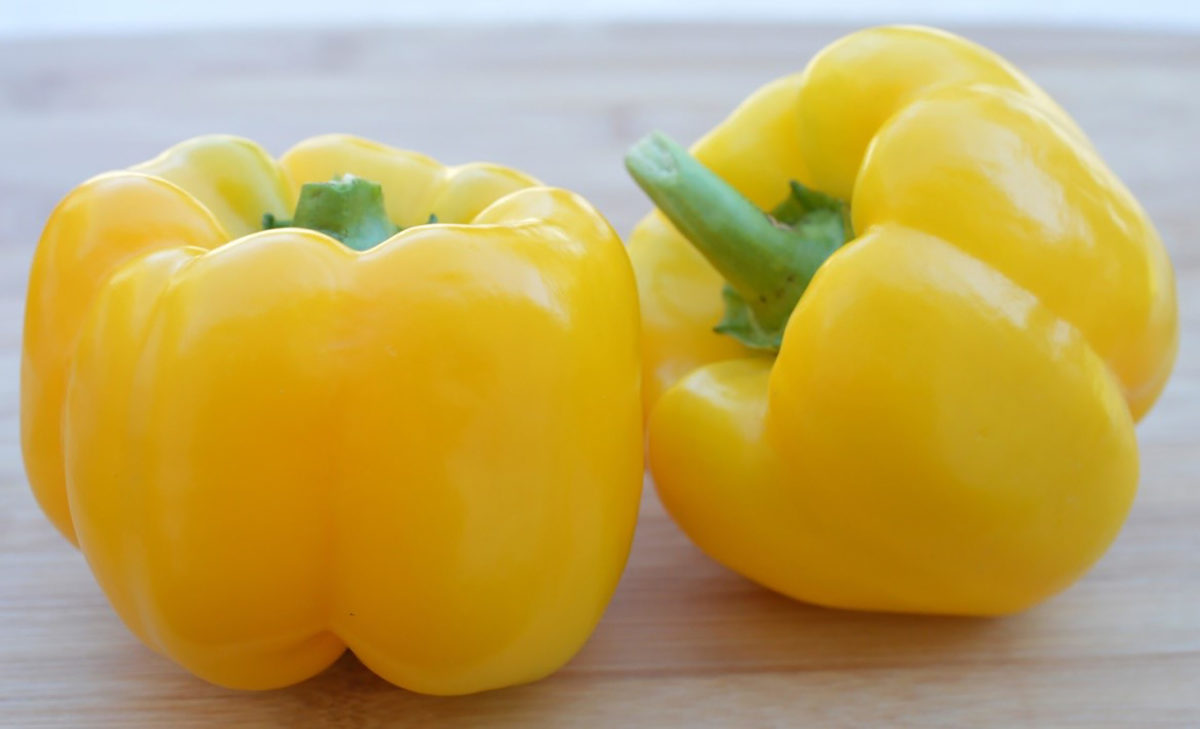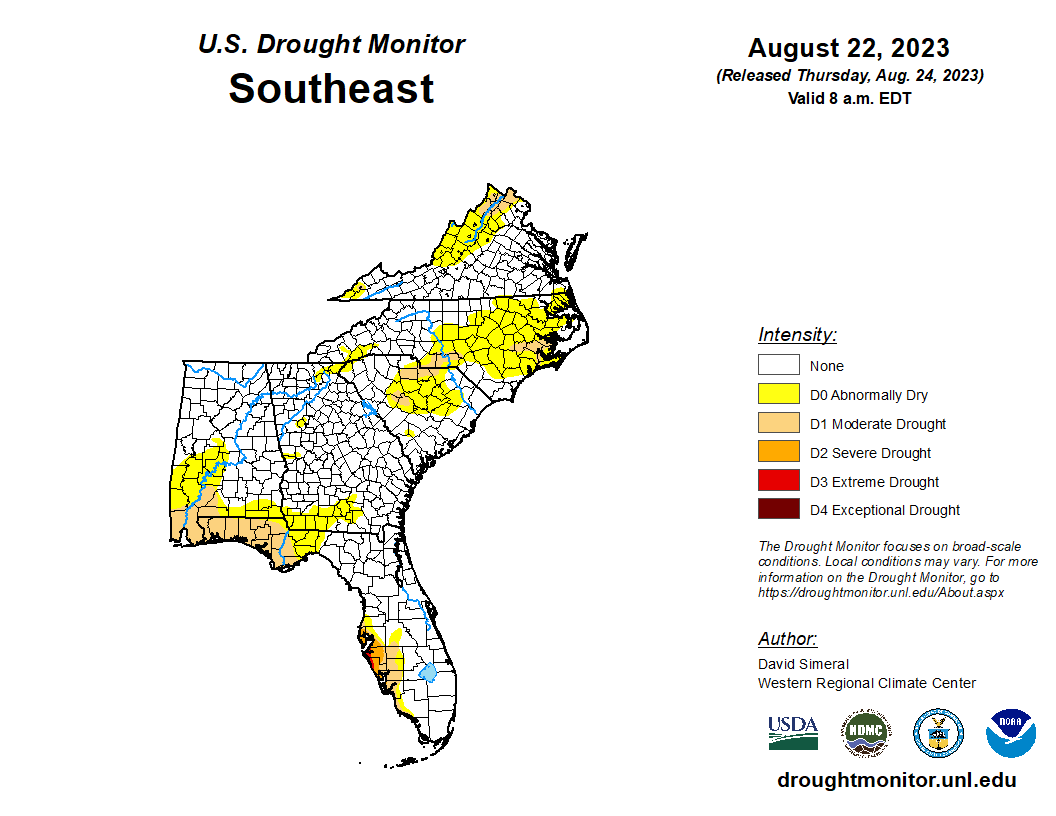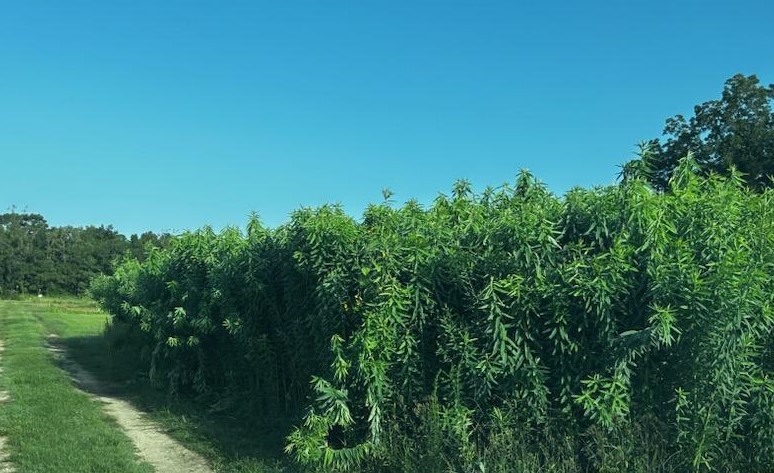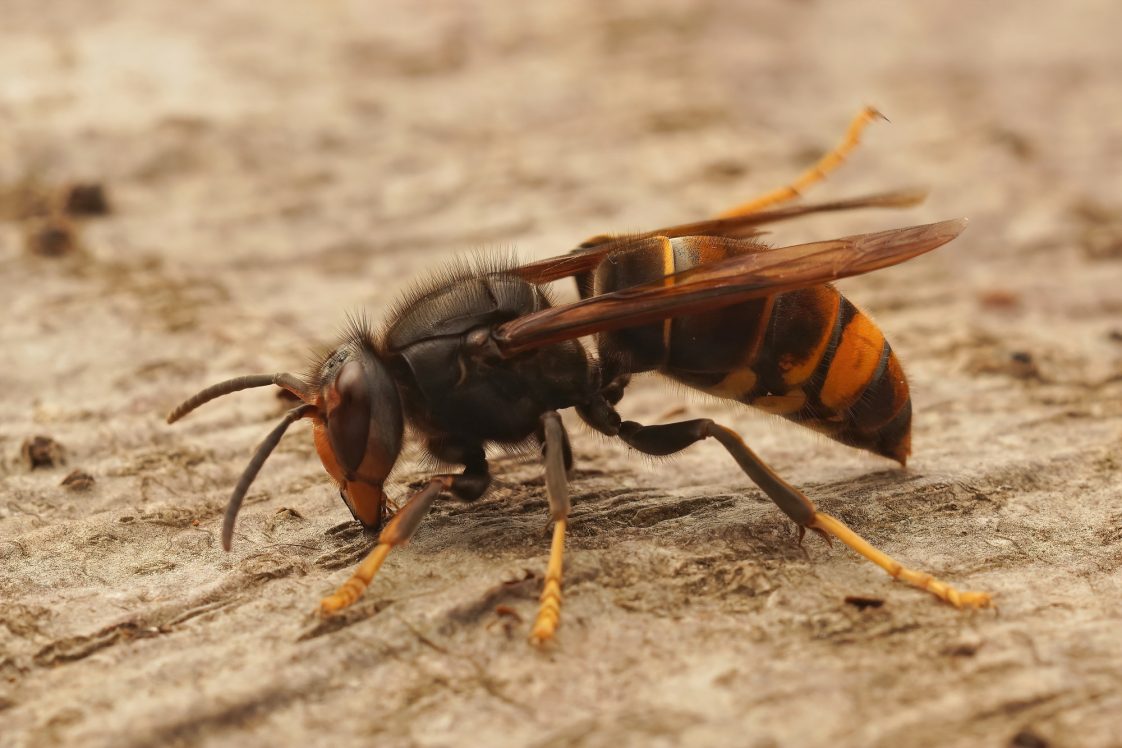By Clint Thompson Seminis Vegetable Seeds (Bayer) has an answer for those pepper producers combating bacterial leaf spot disease. New varieties with disease resistance are critical for growers who are concerned that they are overusing imperfect fungicides. Andrew Scruggs, market development representative in North Carolina for Bayer Vegetable Seeds, discussed the situation facing growers. “You think about the Southeast United …
Warm Temps, Dry Conditions Help Whitefly Numbers Increase
By Clint Thompson The inevitable has finally happened in the Southeast; whitefly populations are on the rise. It was bound to happen considering the prolonged hot and dry weather conditions being experienced across the region. “I think it’s still probably localized, but yeah, there are some fields, if you start getting squash coming up, it just pulls them in like …
Drought Monitor: Dry Conditions Expanding Across Southeast
Dry conditions are becoming more widespread across the Southeast. In some areas of the region, the dry weather is classified as a moderate drought, according to the U.S. Drought Monitor. The worst conditions are observed along the Florida Panhandle. A moderate drought starts in Escambia County and stretches Liberty and Franklin counties. Abnormal drought conditions continue eastward to Jefferson County. …
USDA Announces $72.9 Million in Grant Funding Awarded to Support U.S. Specialty Crop Producers
WASHINGTON — The U.S. Department of Agriculture’s (USDA) Agricultural Marketing Service (AMS) announced on Wednesday that $72.9 million has been awarded to 55 states and territories through the Specialty Crop Block Grant Program (SCBGP). The grant program provides funding to enhance the competitiveness of specialty crops and support specialty crop growers through marketing, education and research. “USDA is excited to announce …
In the Field: Clemson Extension Agents Provide Crop Updates
Weekly Field Update Clemson Extension agents provide updates in The South Carolina Grower this week about the status of various crops being produced throughout the state. Coastal Region Zack Snipes Midlands Phillip Carnley Rob Last Sarah Scott Pee Dee Bruce McLean
Algal Stem Blotch Observed on Georgia Blueberry
Various instances of algal stem blotch on blueberry have been reported in Georgia in recent days, according to the University of Georgia Blueberry Blog. Growers should be aware that since the disease is caused by an alga rather than a fungus, it is highly unlikely that fungicides will be an effective management option. University of Florida recommendations suggest that sprays …
USDA Announces $72.9 Million in Grant Funding Awarded to Support U.S. Specialty Crop Producers
WASHINGTON — The U.S. Department of Agriculture’s (USDA) Agricultural Marketing Service (AMS) announced on Wednesday that $72.9 million has been awarded to 55 states and territories through the Specialty Crop Block Grant Program (SCBGP). The grant program provides funding to enhance the competitiveness of specialty crops and support specialty crop growers through marketing, education and research. “USDA is excited to …
Yellow-Legged Hornet Causes Threat to Agriculture
By Clint Thompson The presence of the yellow-legged hornet in Georgia has specialty crop producers in the Southeast on high alert. Their presence is a threat to the region’s honey bee population and subsequent crops that rely on honey bees for pollination, explains Katelyn Kesheimer, Auburn University assistant professor and Extension specialist. “Similar to what people were calling the murder hornet …
Georgia’s Pecan Crop Estimate Remains a Question Mark
By Clint Thompson Estimating this year’s pecan crop in Georgia is easier said than done. That’s why Lenny Wells, University of Georgia Extension pecan specialist, steers clear when making such predictions. Various factors can impact the crop between now and harvest time. It is compounded by the expected increase in the number of young trees coming online this year. “Giving …
Yellow-Legged Hornet a Threat to Agriculture
By Clint Thompson The presence of the yellow-legged hornet in Georgia has specialty crop producers in the Southeast on high alert. Their presence is a threat to the region’s honey bee population and subsequent crops that rely on honey bees for pollination, explains Katelyn Kesheimer, Auburn University assistant professor and Extension specialist. “Similar to what people were calling the murder …














